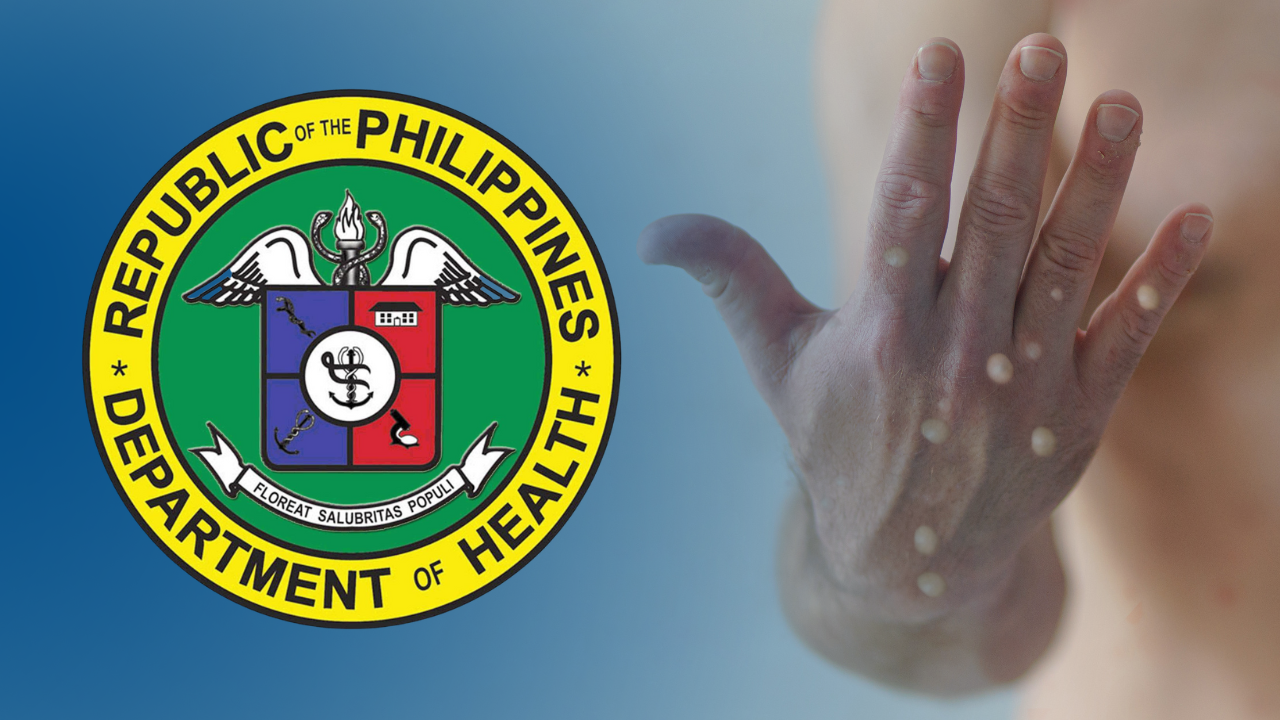
MANILA, Philippines — The Department of Health (DOH) has updated its guidelines on the prevention and management of the infectious mpox disease as the Quezon City government reported its first case of infection.
The DOH reiterated that all 15 mpox cases in the country involved a less virulent and treatable variant of the disease, but the public should still take preventive measures.
The case in QC involved a 37-year-old male resident of the city. He started exhibiting symptoms on Aug. 16 and was admitted to the San Lazaro Hospital on Aug. 22. After testing, Patient 15 was found positive on Aug. 26.
READ: DOH updates guidelines to keep public safe from mpox
“For now, we are closely monitoring the [patient]. We have also located his 15 contacts whom we continue to monitor,” Mayor Joy Belmonte said.
These contacts were believed to be exposed at the Infinity Spa and Fahrenheit Club (F Club), which were both temporarily closed by the city government.
READ: DOH tallies 2 new mpox patients in NCR, Calabarzon
Since the detection of the first mpox case this year, the city government said it has activated its own prevention and management protocols and all healthcare workers have also been oriented about reporting and handling mpox cases.
Belmonte called on establishment owners to cooperate and comply with the city’s contact tracing efforts to curb the spread of the virus and ensure the safety and welfare of Quezon City residents and transients.
The city government has also established the QC Task Force MPOX through Executive Order 14 consisting of various city government departments and offices.
DOH officer in charge Assistant Secretary and spokesperson Albert Domingo said the updated guidelines were contained in Department Memorandum No. 2024-0306 dated Aug. 26 and made public on Friday.
Hygiene, caution
Mpox is caused by the monkey pox virus, which has two recognized clades or variants. Transmission occurs through direct contact with infectious skin or mucosal lesions, body fluids, respiratory droplets, or contaminated materials.
The DOH advised the public to avoid close and intimate skin-to-skin contact, including sexual contact, kissing, hugging and cuddling with individuals who are suspect, probable or confirmed cases of mpox.
The public is also advised to practice frequent and proper hand hygiene, thoroughly clean fomites (objects suspected of being contaminated with the virus or handled by infectious persons), and avoid contact with animals that may carry the virus, including deceased pets and other animals found in areas where mpox is present.
Household members and persons caring for suspected cases are required to disinfect contaminated surfaces.
In airports and seaports, inbound and outbound international travelers are required to provide accurate responses to health declaration forms and to approach health personnel on duty if experiencing any symptoms.
In public and private facilities, health workers are required to wear personal protective equipment when caring for suspected cases.
During history-taking and physical examination, health care providers should observe for skin lesions with vesicles or pustules that are deep-seated, firm or hard. Other symptoms include fever, chills, myalgia, back pain, malaise, asthenia or lymphadenopathy.